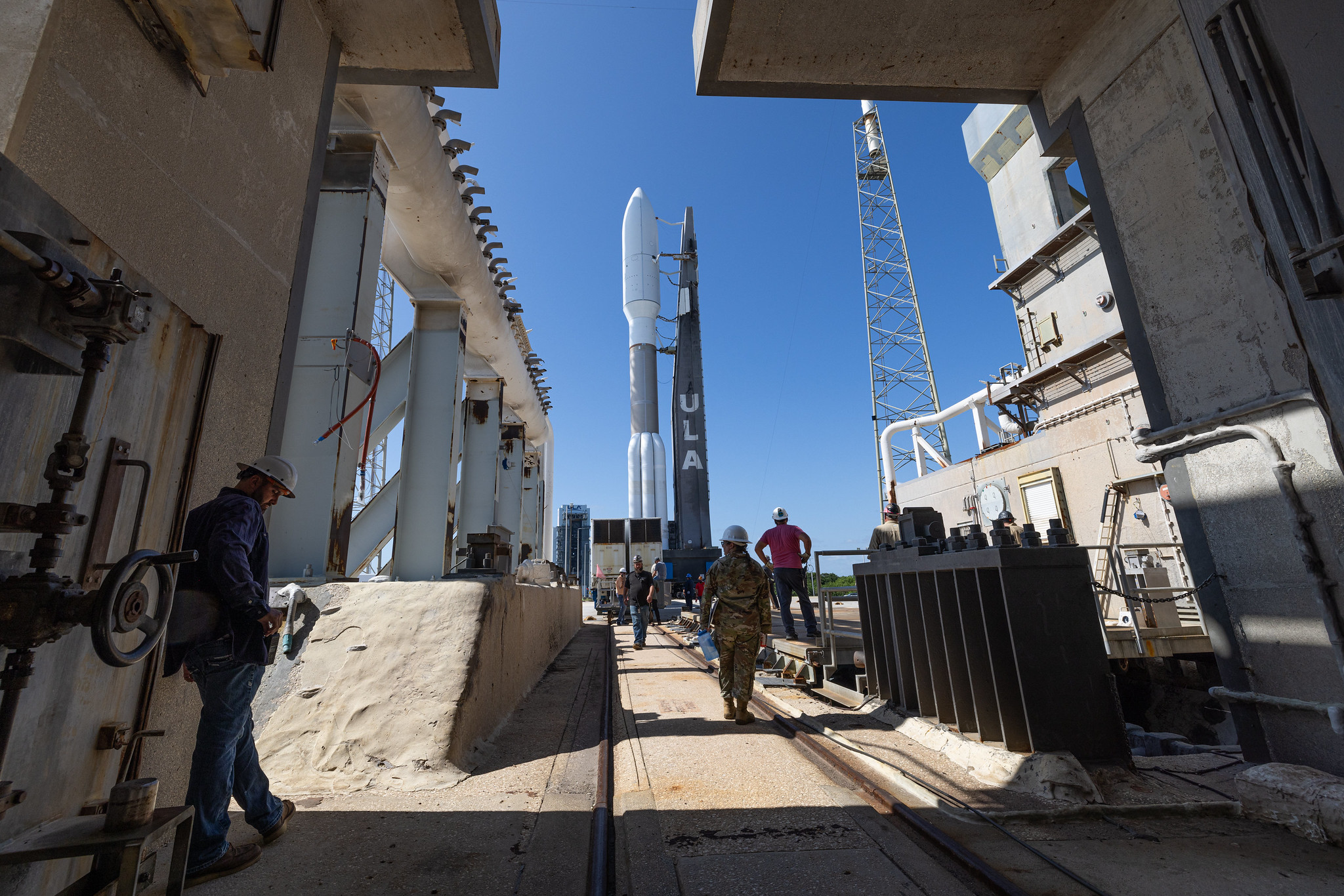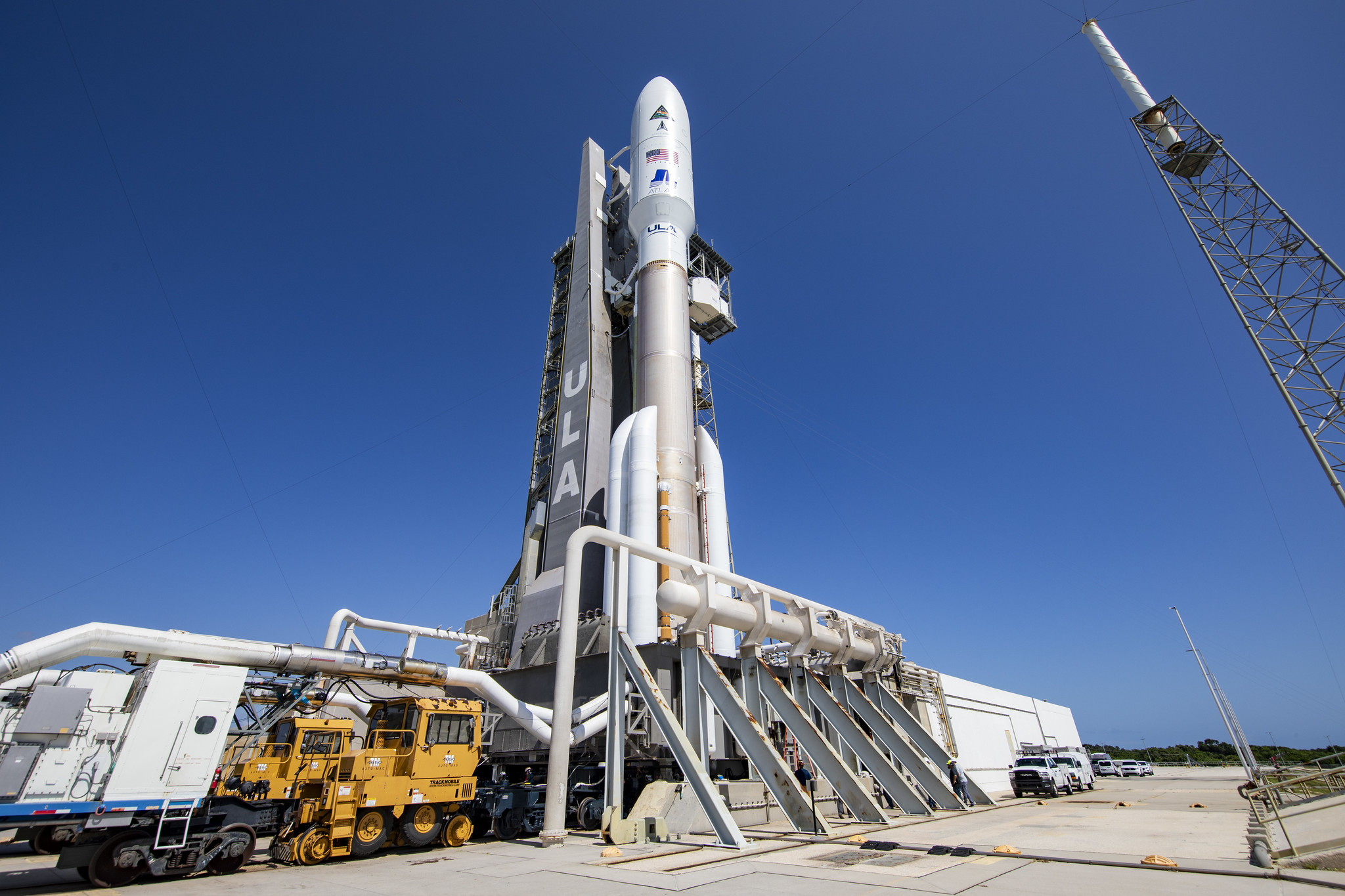9:50 am EDT Tuesday update: The Atlas V rocket has returned to its hangar at Cape Canaveral Space Force Station to take shelter from Hurricane Idalia, which is forecast to strike the Florida Gulf Coast this week. This rollback of the rocket likely pushes the launch until no earlier than some time Labor Day weekend.
8:45 pm EDT Monday update: The launch of an Atlas V rocket with the Silent Barker mission has been postponed from Tuesday due to Tropical Storm Idalia. "Out of an abundance of caution for personnel safety, a critical national security payload and the approaching Tropical Storm Idalia, the team made the decision to return the rocket and payload to the vertical integration facility (VIF)," ULA said. "We will work with our customers and the range to confirm our next launch attempt and a new date will be provided once it is safe to launch."
Original post: The National Reconnaissance Office doesn't typically talk about any of its missions, but in an unusual break with precedent, the button-down spy satellite agency is taking a different tack with its next launch Tuesday from Cape Canaveral, Florida.
"We’re trying to be more transparent and share more information," said Chris Scolese, director of the National Reconnaissance Office, in a roundtable with reporters Monday. As more countries and companies launch missions into space, Scolese said the space environment is becoming more congested, contested, and competitive.
"It’s also becoming easier and easier to see what’s going up there," Scolese said. "We want to let people know, to some extent, what our capabilities are."
The NRO has multiple satellites—officials won't say exactly how many—mounted on top of a United Launch Alliance Atlas V rocket for liftoff at 8:34 am EDT (12:34 UTC) from Cape Canaveral Space Force Station. Their destination is geosynchronous orbit, a belt of satellites positioned more than 22,000 miles (nearly 36,000 kilometers) over the equator.





 Loading comments...
Loading comments...
